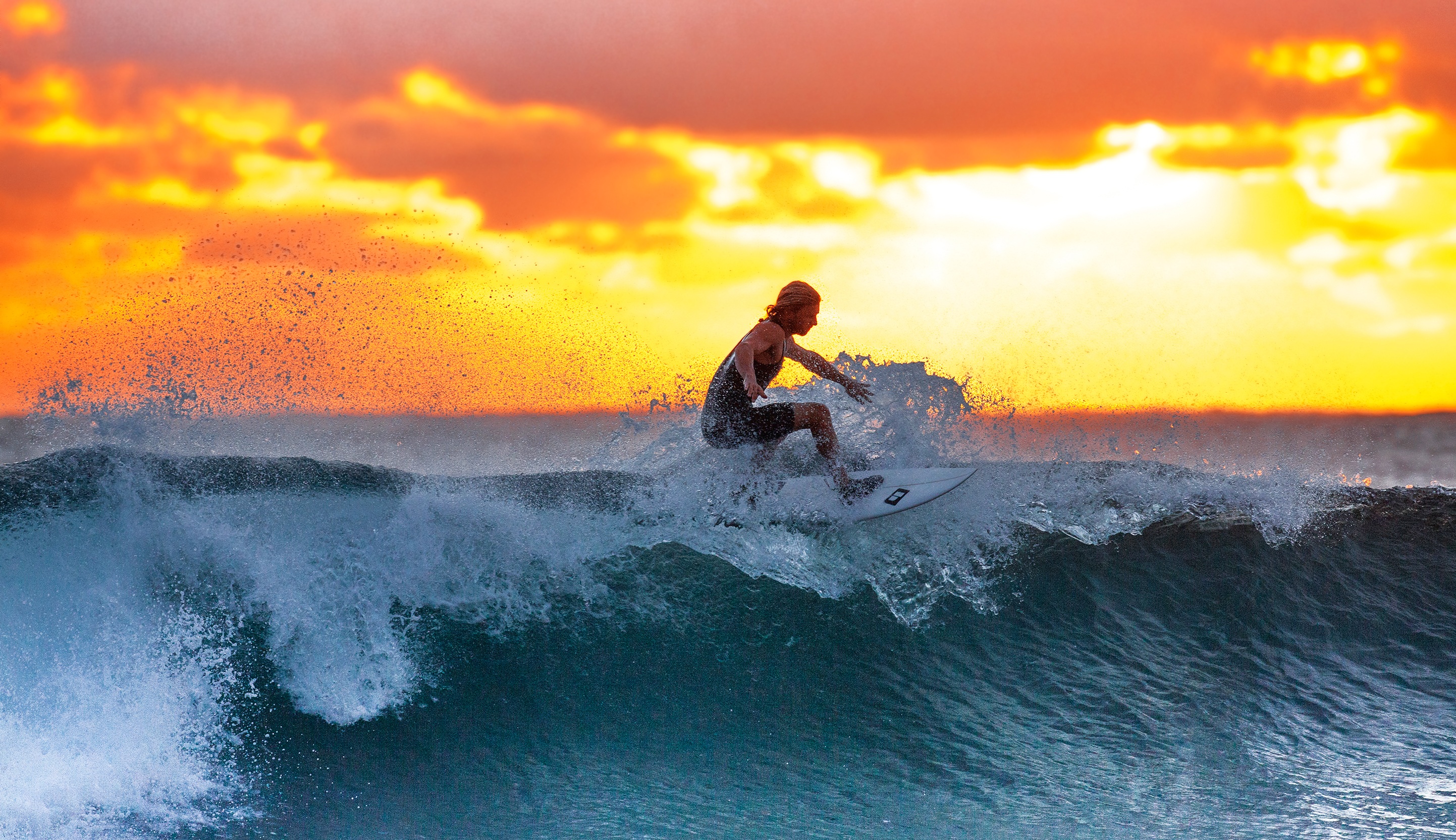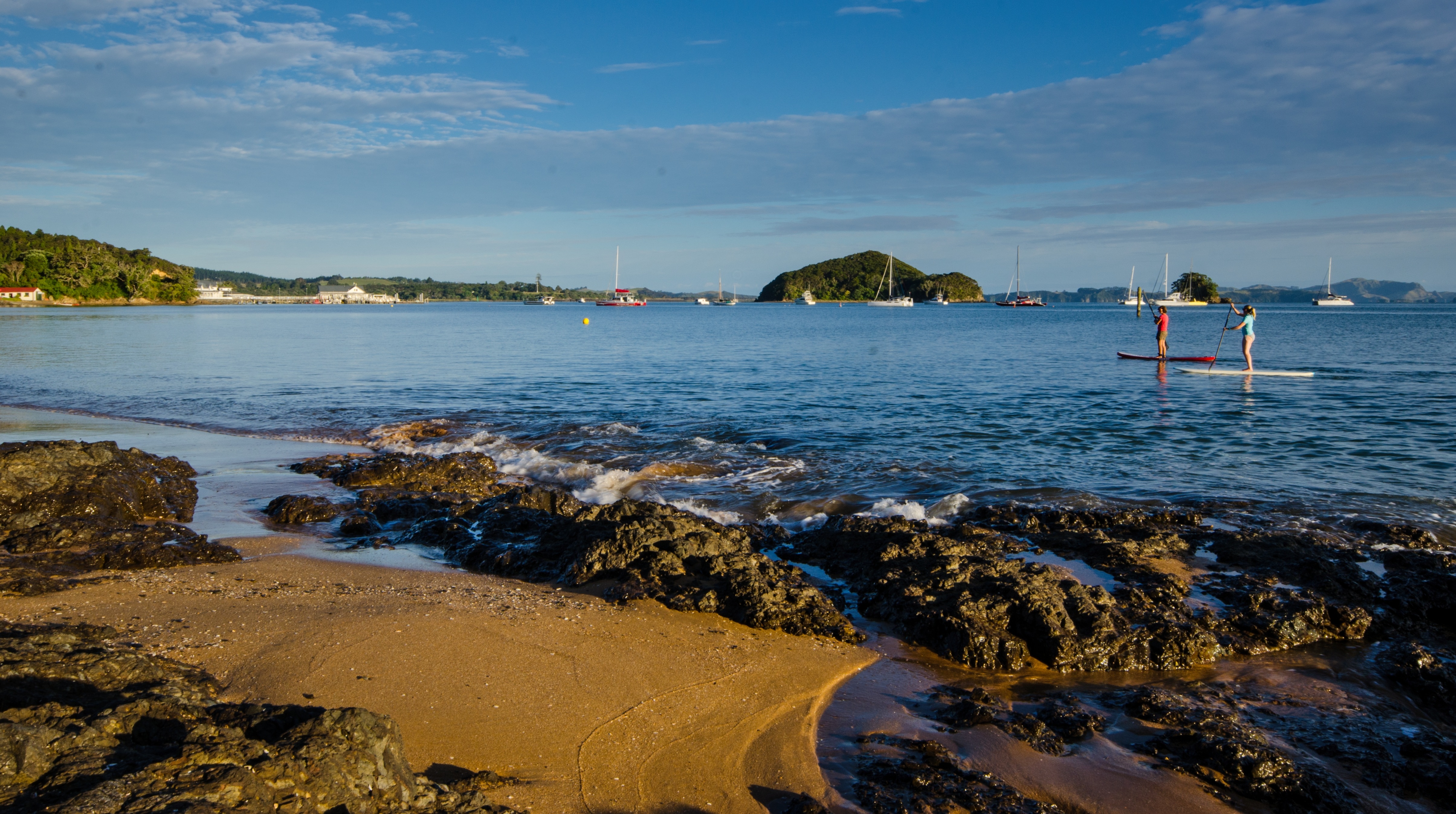Surfing, windsurfing and stand up paddle (SUP)
This overview is a collective summary of the evidence on the possible benefits of surfing, windsurfing and stand up paddle (SUP) on people’s physical and mental health.

Conclusions are drawn from three information sources: 1) existing scientific studies; 2) information from specialized sport websites, where users voice their perceptions of health in relation to these recreational activities; and 3) knowledge from the personal experiences of 5 experienced surfing instructors in the Cape Creus area obtained through an open ended questionnaire.
To date, there are few academic studies investigating the relationship between surfing, windsurfing and stand up paddle boarding and human physical and mental health and wellbeing. In the study area selected (Cap de Creus Natural Park), surfing is less popular than windsurfing and SUP. However, bearing in mind that both windsurfing and SUP originate from surfing, and the limited research on the benefits of these sports, this study has made parallelisms between these activities, and suggested possible benefits common to all three sports. It is generally thought that these sports exercise both body and mind and can be made accessible to people with disabilities and/or those suffering from mental illness. However, further investigation is needed in order to better define the precise positive impacts.
Physical health
Adapted surfing can be used as a therapeutic tool for physical rehabilitation, especially in the fields of orthopedics and neurology. The environment is stimulating and this also has numerous therapeutic benefits. Adapted surfing helps improve balance and motor coordination, and in cases of specific physical or mental health conditions, it encourages patients to be more autonomous in their daily lives.
The majority of studies investigating links between windsurfing and human health focus on physical injuries or other problems related to windsurfing; no studies were found on the possible benefits of the sport. As windsurfing originates from surfing, future areas of exploration and research questions could base future studies on the benefits of surfing, and use this as a foundation for finding correlations between the two sports.
Stand up paddle boarding also originates from surfing, and is an enjoyable alternative to more traditional water sports. Data suggests it is an excellent aerobic and anaerobic exercise, improves multi-directional trunk endurance, aids weight loss, and improves fitness. It also improves general quality of life, especially in social relationship and environment domains. Trunk muscle endurance improved in every way in the tests performed in this study.
According to specialized sports websites, there is a perception that all three sports under study share the same benefits for our physical health. All the main muscle groups (back, arms, legs and abdominal muscles) are exercised, and learning how to balance on the board builds 'core stability' by engaging the deep postural muscles; thus strengthening them. These sports are excellent calorie burning cardiovascular exercises, and therefore help fight against obesity. These sports also improve joint flexibility. SUP can be considered a low impact sports activity and easier to adapt to as it does not require wind or wave conditions, (unlike the other two sports), and can be done in calm water as well.
The Cap de Creus instructors interviewed for this study suggest that surf sports exercise muscles in the whole body, as well as improving physical balance, agility, strength, and long-term resistance. Although muscles in the whole body are working, the sport mainly exercises the legs, abdominal and arms, as well as improving concentration and coordination.
The lack of available information makes it difficult to come to firm conclusions on how precisely surfing, windsurfing and stand up paddle boarding positively affect our health and wellbeing. Many questions are raised, and the available data is scarce and disperse. Therefore, further medical research is needed in order to investigate the full impact of surf sports on health and wellbeing.

Mental health
Based on the scientific information reviewed, we suggest that surfing, windsurfing and stand up paddle boarding benefits mental health. Surfing appears to have a positive impact in several areas: self-knowledge, exploration, effort and perseverance, problem-solving, time management, group competencies, interpersonal relationships, and emotional regulation.
The findings of several studies point to using surfing as a psycho-therapeutic intervention tool which could encourage a healthy lifestyle, wellbeing, and personal and social skills in young people in situations of psychosocial vulnerability. In contrast, no similar studies on the psychological benefits of windsurfing were found.
Opinions of expert practitioners on specialized online websites point out that surf sports benefit mental health. All three sports require a very high level of concentration in order to achieve good coordination, concentration, maintain balance, and stay safe. This level of concentration helps those practicing the sport to relax, disconnect from everyday problems and reconnect with themselves. SUP can be easily combined with meditation or yoga as it does not require any specific weather conditions (unlike windsurfing or surfing) and can be done on calm sea.
From the knowledge, experience and perceptions of surfing instructors interviewed in Cap de Creus, we can highlight that these sports require full concentration, therefore, they help improve general mental and emotional wellbeing. These sports enable people to connect with nature, they bring a feeling of freedom, of switching off, and of self-control. The natural environment and dedication required in these sports makes them both challenging and adrenaline releasing, provoking feelings of great satisfaction and a deep appreciation for the natural environment.


















